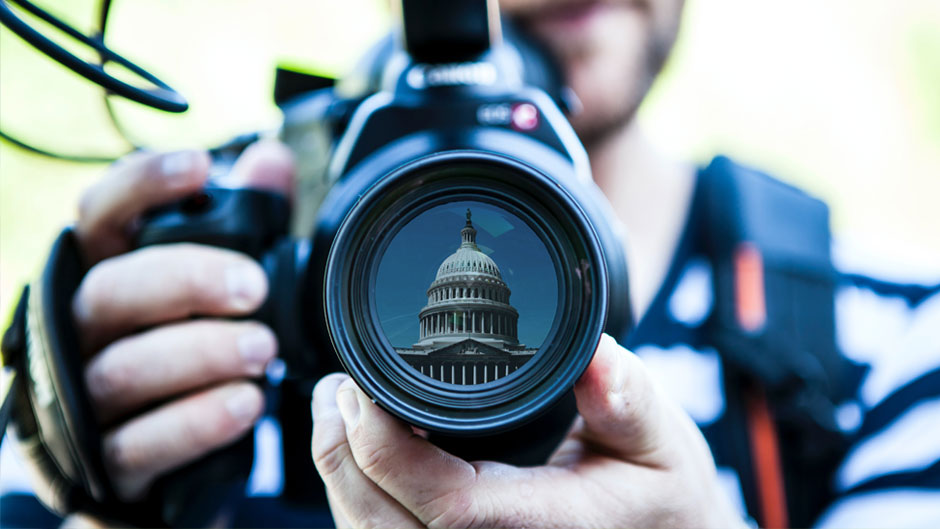In an election year like no other the media takes on a very important role. Last Thursday, NBC 6 news anchor and University of Miami alumna Jackie Nespral led a lively discussion online on the topic, “The role of media in an election year,” with four respected alumni in the news business.
“This will be a year that will be embedded in history books and in our collective memories,” said Nespral as she introduced the Distinguished Alumni Lecture Series, a yearly event established in 1995 through the support of alumnus Stu Bloch, and Ambassador Julia Chang Bloch to honor distinguished alumni.
“So, what is the role of the media in our society and do we really have the potential of changing perspectives?” Nespral asked.
Alex Ferrer, attorney and retired Florida Circuit Court judge and former host of the court show “Judge Alex” said: “The media is indispensable in informing and educating the voters. There is a difference between educating and influencing voters. I think that is where the allegations of media bias come from.”
Chuck Todd, an honorary degree recipient in 2014 and political director of NBC News and moderator of “Meet The Press,” said the main reason people turn in to watch Sunday shows is to be educated. “They want to try to keep up and be better informed as citizens,” he said. He noted that some members of the media want to educate while others want to be influencers. He said that not understanding that distinction has damaged the reputation of journalism.
“My concern is that most people think media is cable news and it is not,” Todd said. “Cable news is not day-to-day journalism. It covers day-to-day news, but it is a different vibe that people get from cable news. That has defined the media as being more in the advocacy and influencers game.”
Most journalists do not do advocacy journalism, he said.
Maribel Perez Wadsworth, president at Gannett Media and publisher of USA Today, agreed that the media has been painted with a broad brush.
“There is less of a distinction between national news and local news, which so many Americans rely on for really important information that is really relevant to them and their lives,” she said.
Perez Wadsworth also said that in this election there should be an emphasis on educating the voter on the integrity of the electoral process.
“This is a time where there is an assault and unfounded claims of voter fraud that are calling into question the integrity of our elections,” she said. She believes that journalists need to be explaining the intricacies of the electoral process to their readers and viewers as they head to an election night and post-election time that could be confusing, she said.
Cynthia Hudson, senior vice president at CNN en Español, said the role of the media, whether it is in Spanish or English, is based on the original concept of the Fourth Estate.
“Our role is to check the process of democracy,” she said. She worries that there are cable networks that call themselves news networks, yet they have no trained journalists presenting the news.
“They are basically propagandists,” Hudson said. “You have real news with people who have fact checkers and sources and then you have people who are talking about conspiracy theories. Our democracy is in trouble.”
Panelists also agreed that the advent of social media has encouraged news organizations to value the amount of “clicks” on a particular story rather than its journalistic importance.
Todd said he advises young journalists to get off social media because in many instances stories on it are nothing but “character assassination.”
“I think social media has damaged the United States of America,” he said.
Hudson also added that a society that accepts calling the press “the enemy of the people” is dangerous.
“All the dictators in history have called the press the enemy,” she said. “But when we as people start normalizing the principle that the press is the enemy, we have a problem.”
Perez Wadsworth acknowledged that society was in a dangerous place as it concerned the press but said that members of the “legitimate” media also had an obligation to be more transparent about their work.
“We need to educate and explain to people how we do our work including how we do our sourcing, and we need to very transparent if there are any kind of conflicts in what we do,” she said. “We need to be incredibly transparent and timely with corrections when we make mistakes because we do make them.”
All these things would restore credibility and trust in the media, Perez Wadsworth said.

